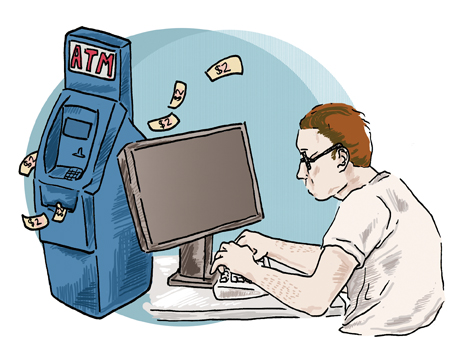Want to change the face of the Internet? Want to maximize your cultural clout?
Click on ad. Don’t read ad, close ad.
That’s the gist of the classic capitalist model of voting with your dollars, revamped to cost you absolutely nothing.
I’ll offer a disclaimer here: the Manitoban garners revenue from online advertising. We’re a not for profit organization: I don’t stand to gain from this article, except in my ability to produce news and commentary (which I hope provides some value to you).
Let’s say you enjoy the content you find on an Internet site. You want to encourage the provider. You don’t want to pay anything.
Let’s say it takes one second to find and click on an advertisement (ads are usually obvious), one second for your browser to load the page the advertisement links to and one second to close the page. That’s a total of three seconds of your time.
Click through ad price is the price advertisers pay providers each time a browser is directed to the advertiser’s site through an ad link. At the absurdly low, by industry standards, click-through ad price of two cents, you just earned the content provider . . . well, two cents.
Sounds like a negligible amount? Take the math a little bit further.
Two cents divided by three seconds multiplied by the 3,600 seconds in an hour equals an hourly rate of $24. That’s a decent wage.
I’ll reiterate here that the two cents is misleadingly low; rates range as high as five dollars per click — $6,000 an hour at your fingertips — and are more commonly set near a dollar per click — a respectable $1,000 an hour.
I don’t know what our readers’ wages are. For me, being able to donate my time to a site, which has donated its content to my brain, at a rate of $1,000 an hour feels empowering.
I have become a patron to a number of Internet content providers. I have done so with all the upside of generosity — positive emotions at making a difference and constructively shaping culture. I have paid none of the traditional cost — money.
I’m not suggesting that all sites are worthy of this treatment. If you don’t like the way a news or social media provider is changing their model you can let them know by ending your support, ditto providers of low grade material. Give unworthy content no worth. Along the same vein it is important to encourage previously bad providers moving in good directions. Be the carrot and the stick.
I’m not suggesting that you do this repeatedly for each article, video, song, or what have you. I’m suggesting that for three seconds of your time you can make a significant bottom line contribution to the providers of your favourite Internet content.
“Hold on!” You cry. “Won’t this lower the cost per click my favourite site can charge.”
In short: No.
First, I’d like to point out that some (the best?) sites are socially conscious, only permitting advertisements from organizations whose success they believe conducive to a healthy society. If a provider you like — who likely shares at least some of your tastes — offers an ad to you, it is quite possible you will appreciate what the link offers.
Second, advertisers are blind to your intentions. If you like the content of a site and dislike the advertiser then you are double voting with your click. When all is said and done you effectively take money from the advertiser and give it to the content provider.
Many Internet advertising contracts stipulate fees on a pay per impression model (CPM). A thousand impressions, or viewings of an ad, is the unit for which advertisers are charged in this fee structure. CPM sites will nonetheless benefit from your acknowledging them for their quality. The price per viewing that these sites charge is set utilizing various rubrics but with near ubiquity the click through percentage — the frequency with which an impression translates into opening an ad’s link — is a major factor.
We, as global citizens are shapers as well as consumers of culture. Whilst we cruise the Internet, we can be offering support to the cultural content we find most suitable by offering financial support to their creators. The fact that we can now do this with someone else’s money, that we can often choose whose money is paying for our information and entertainment, should not be ignored.
In a sense we already do this — every time we repost content or offer a link, or like, or upvote to a site we enjoy — we are influencing, ever so slightly, the direction our world will take.
Clicking on banner advertisements is a no less effective method of shaping our society.
The allocation of resources is meaningful. What are you doing with your next three seconds? Why not share your two-cents?




